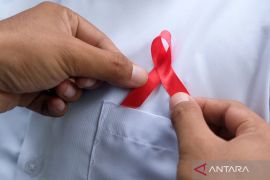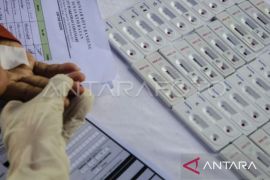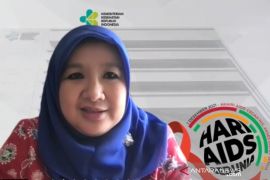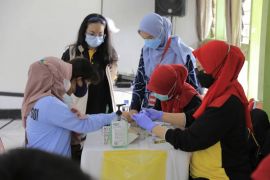"We know that there is a viral news in which HIV/AIDS prevalence in several regions is high right now," Head of BKKBN Hasto Wardoyo noted at an online media briefing on Thursday.
Therefore, efforts to promote the use of condoms for preventing sexually transmitted diseases and unwanted pregnancies must be intensified, he said.
This is so that the nation's successors are not of poor quality and understand the importance of their and others’ reproductive health.
Moreover, condoms must also be promoted as tools for preventing unhealthy pregnancies, which could lead to stunting in children, as well as curbing maternal and infant deaths.
The distribution chain of condoms in Indonesia is already very clear. Condoms are provided free of charge by the government through health offices and health facilities in the regions, Wardoyo informed.
All data related to condom usage among fertile age couples are registered in a system managed by the agency. Moreover, all hospitals are currently required to offer family planning programs.
The government is currently focusing on offering the program to mothers soon after they give birth and young couples during marriage counseling.
"Condoms can be given through marriage counseling," Wardoyo said.
"Thus, if they are too young but want to get married and if they are young but already married, this can be a good target to disseminate the use of simple contraceptives," he added.
Meanwhile, family planning and reproductive health deputy at the agency, Eni Gustina, said that Papua and West Java regions have currently detected an increase in HIV/AIDS cases.
This is indicative of the high frequency of sexual intercourse among people. Further, though the Health Ministry does not distribute condoms to sex workers, they can be purchased independently at a number of places.
"While we know that it is free in several mini markets, condom usage is very low, which makes HIV cases very high," Gustina explained.
BKKBN cannot work alone to control the prevalence of sex without condoms, she emphasized.
She then urged all ministries, institutions, and related parties to help disseminate information on contraceptives so that Indonesia can be a role model for other countries.
While Indonesia's population is dominated by Muslims, the country still needs to provide contraceptive services by prioritizing their usage among couples, Gustina said.
Beyond that, there has to be its own legality by the institutions within the public. Thus, the people have to start educating families, she added.
Related news: East Nusa Tenggara: 20 succumb to HIV/AIDS in Jan-Aug
Related news: West Java turns to the 'ABCDE' of HIV/AIDS prevention
Translator: Hreeloita D S, Fadhli Ruhman
Editor: Rahmad Nasution
Copyright © ANTARA 2022










